Rising Stars
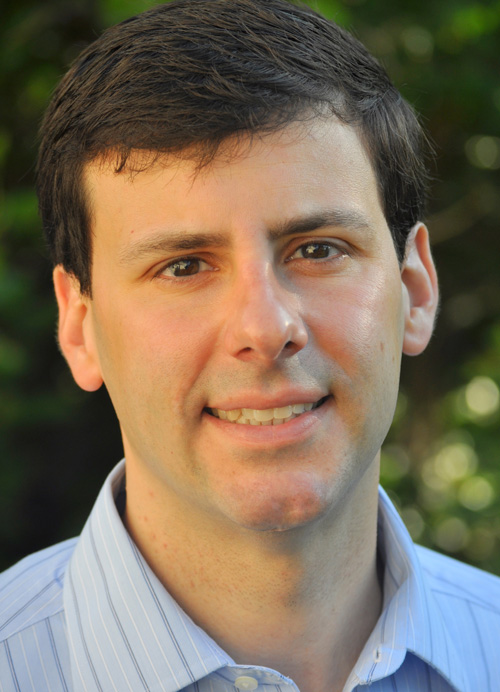
Brian D’Onofrio
Indiana University, USA
What does your research focus on?
My research focuses on identifying the mechanisms through which environmental factors, such as pregnancy-related, parental, and neighborhood risks, are associated with child and adolescent psychopathology. I am currently utilizing three approaches to specify these developmental processes: (1) quasi-experimental designs, including the comparison of differentially exposed siblings, twins, and offspring of twins; (2) longitudinal analyses; and (3) randomized-control, intervention studies.
What drew you to this line of research? Why is it exciting to you?
I have always been intrigued by family relationships and psychological development. Why do some couples divorce? How do parents influence their children? Why are siblings so different? But, I first became fascinated with psychological science as an undergraduate student at the University of Virginia. I was (and continue to be) energized by the opportunity to study the causes and treatments of mental health problems because these are associated with enormous pain and suffering. Throughout my career I also have become more and more convinced of the importance of using the best possible research methods possible. In my clinical work, my teaching, and involvement in policy discussions I am constantly reminded of the dangers of relying on poor psychological science (or no science at all). It is a joy, therefore, to help push the field forward (albeit slightly) and teach students the importance of psychological science.
Who were/are your mentors or psychological influences?
I have had the privilege to work with a group of phenomenal researchers in multiple disciplines as part of my training. While I was an undergraduate student, Mavis Hetherington introduced me to the scientific study of the family (with all of its complexity), and Steve Nock instilled in me a great appreciation for the necessity of using the best sampling strategies when studying families. While working as a post-baccalaureate research associate, Lindon Eaves stressed that the search for truth requires the utmost intellectual rigor. My main research advisor in graduate school, Eric Turkheimer, always encouraged me to never be satisfied with the accepted “facts” in psychological or behavior genetic research, and he continues to inspire me by his use of sophisticated research approaches to answer important psychological questions. As a graduate, student Robert Emery also taught me the importance of spanning various scientific disciplines, especially when studying familial risks.
To what do you attribute your success in the science?
From an early age my parents taught me to ask questions, search for answers, and work hard. My success in academia is due to this background and a number of other critical factors. First, as described above, the generosity of my mentors was truly significant. Second, I now have the tremendous opportunity to work with a several research collaborators, such as Ben Lahey and Paul Lichtenstein, whose work is inspiring and groundbreaking. Third, to be perfectly honest, trying to keep up with my talented graduate students has lead to wonderful and unexpected research avenues. Fourth, a great deal of my success is also due to my colleagues at Indiana University, especially in the Department of Psychological and Brain Sciences. They have provided me with countless interdisciplinary opportunities, an incredibly collaborative environment, phenomenal resources, and protected time to focus on my research. Finally, I have been blessed with an incredibly supportive wife and two amazing young boys (who also have taught me the importance of studying child effects!).
What’s your future research agenda?
In the immediate future I am expanding the scope of my research to examine early neurodevelopmental problems and am placing a greater emphasis on prenatal risk factors. Broadly speaking, though, I plan to combine: (a) powerful quasi-experimental research designs, (b) excellent measurement of environmental and biological risk factors, and (c) a developmental framework to better understand the etiology of child and adolescent psychopathology.
Any advice for even younger psychological scientists? What would you tell someone just now entering graduate school or getting their PhD?
First, I recommend young scientists read one of my favorite articles, “The Importance of Stupidity in Research” by Martin Schwartz (it is only 1 page). The article emphasizes that students must humbly acknowledge and embrace our general ignorance in order to excel at research. Second, I recommend students search out mentorship and training from multiple researchers across several areas of study. Balancing the demands for both breadth and depth is difficult, especially for students, but psychological science is becoming increasingly more interdisciplinary and translational. Third, I recommend young scientists seek excellent training in quantitative methods. Regardless of your field of study, the ability to articulate your hypotheses analytically is essential for carefully testing them. Finally, make it a priority to create a schedule so that you can work efficiently and have time for your family, friends, and community. While you are working, make sure you are working (e.g., no Facebook). And, while you are relaxing, make sure you aren’t working (e.g., no checking email).
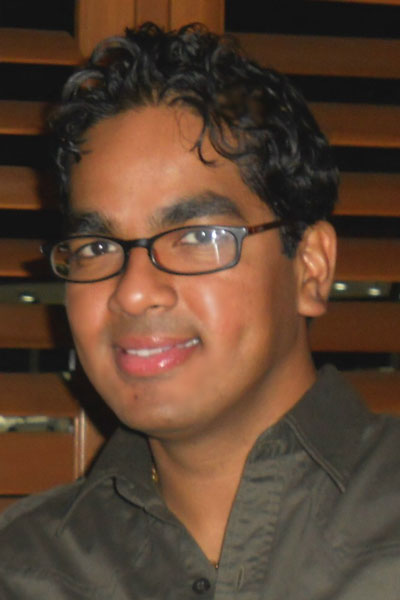 Nigel Gopie
Nigel Gopie
Rotman Research Institute, Baycrest, Canada
What does your research focus on?
How does memory facilitate our communication? Memory underlies our ability to retrieve the name of a colleague or to remember what we said to a friend a week ago so we do not repeat a joke or information. My research focuses on how memory facilitates these socially important tasks.
What drew you to this line of research? Why is it exciting to you?
Forgetting the names of familiar people and prefacing conversations with, “Have I told you this before?” is not just prevalent among older adults but it is also a common problem among people in my generation. These cognitive lapses are still not well understood and it excited me to shed light on these socially significant processes.
Who were/are your mentors or psychological influences?
I am fortunate to have had excellent mentors throughout my training as a psychology researcher. Morris Moscovitch at the University of Toronto ignited my passion for researching how people process information and understand their world; Colin MacLeod at the University of Waterloo taught me the importance of careful methodological research and instilled the value of achieving a successful academic work and personal life balance; and Fergus (Gus) Craik at Baycrest, a University of Toronto teaching hospital, reinforced the importance of keeping in mind a solid theoretical framework during the research process. Most importantly, Morris, Colin, and Gus provide gentle guidance and helpful advice during all facets of life.
To what do you attribute your success in the science?
My mentors and supportive University of Toronto and Waterloo colleagues, an unstinting desire to sate my intellectual curiosity, and a good dose of luck have resulted in successes in science.
What’s your future research agenda?
I have only begun to understand the pivotal role of memory in our complex social interactions and would like to further explore this avenue of work. I am also currently using neuroimaging technology (fMRI) to advance neurocognitive theories and this will play an important role in my future research as neuroscience and cognition continually augment each other.
Any advice for even younger psychological scientists? What would you tell someone just now entering graduate school or getting their PhD?
Junior academics, including myself until not too long ago, often believe that the academic path is straight and narrow. My advice is to carefully choose academic mentors, to savor the journey, to celebrate all forms of success, and to boldly seize opportunities that will broaden your personal and professional horizons.
What publication you are most proud of or feel has been most important to your career?
I am most proud of my first publication regarding destination memory, memory for what we tell to whom, which is complementary to source memory. This research was published in Psychological Science and was a labor of much love, resonated with academic colleagues and international media, and continues to be a source of inspiration for one of my research programs.
What publication are you most proud of or feel has been most important to your career?
My colleagues and I wanted to rigorously test the widely accepted inference that maternal smoking during pregnancy causes offspring behavior problems by using multiple research methods in one paper, including the comparison of differentially exposed siblings, offspring of siblings, and offspring of twins. The findings were the first in a string of quasi-experimental studies by our research group and others that suggest maternal smoking does not have a direct, causal influence on offspring antisocial behavior and related problems (in contrast to pregnancy-related outcomes, such as preterm birth).
D’Onofrio, B. M., Van Hulle, C. A., Waldman, I. D., Rodgers, J. L., Harden, K. P., Rathouz, P. J., Lahey, B. B. (2008). Smoking during pregnancy and offspring externalizing problems: An exploration of genetic and environmental confounds. Development and Psychopathology, 20, 139-164.
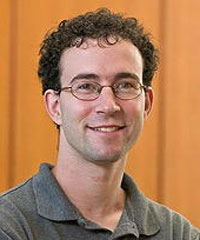 Daniel Oppenheimer
Daniel Oppenheimer
Princeton University, USA
http://web.princeton.edu/sites/opplab/
What does your research focus on?
I dance around a lot of different research areas, but most of them are somehow connected to metacognition, judgment and decision making. How does what we think we know, (and how we think we think) influence the way we make decisions?
What drew you to this line of research? Why is it exciting to you?
I wish I had better metacognition about what draws me to these sorts of projects. Really, I just do whatever projects grab my attention. At any given moment, there rarely seems to be any connection between the different projects I’m working on. But when I look back in hindsight there do seem to be common themes. Which just goes to show that metacognition is flawed (which is good, because that’s what my research suggests…).
Who were/are your mentors or psychological influences?
I started making a list, but when I hit 50 names and hadn’t gotten near the end I realized it was a doomed exercise. There have been so many people who have been invaluable in this regard that I can’t possibly list them all. I’ll single out Bobbie Spellman, because she’s not only a great source of inspiration, but also a great source of chocolate.
To what do you attribute your success in the science?
Great mentors, a willingness to take on risky projects, an appreciation for converging evidence, and chocolate milkshakes.
What’s your future research agenda?
I plan on continuing to do research on whatever interesting projects catch my eye. That seems to be moving me more towards causal reasoning these days, but ask me again in 6 months and I’d probably say something different.
Any advice for even younger psychological scientists? What would you tell someone just now entering graduate school or getting their PhD?
Being critical of research is easy. The challenging (but important part) is being able to glean the good out of a flawed project. That means being able to learn from papers, even those with serious shortcomings. It means being open to research in areas that don’t on the surface seem like they’ll be interesting or relevant. And crucially, it means applying that same mindset to your own research. Often times the most interesting data sets are the ones that don’t support your hypothesis — that means there’s an open question waiting to be solved. You can (and should) learn something from every paper you read, every talk you attend, and every study you run, even if it’s something different than what you were expecting (or hoping for).
What publication are you are most proud of or feel has been most important to your career?
My very first publication was accepted without revision. Since then I’ve never had any paper so well received by the reviewers. But starting my career with such positive feedback really bolstered my confidence (had my first publication been one with 5 cycles of R&R — which I’ve also had — I would probably have been much less motivated).
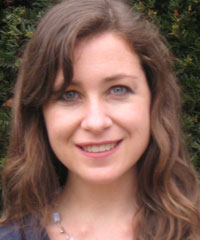 Shannon Wiltsey Stirman
Shannon Wiltsey Stirman
U.S. Department of Veterans Affairs National Center for PTSD
Boston University School of Medicine, USA
http://www.bumc.bu.edu/psychiatry/faculty-staff/
What does your research focus on?
My research focuses on the implementation of evidence based practices in mental health. I’m particularly interested in two areas: training and sustainability. My collaborators and I are trying to determine the best methods of training clinicians to deliver new treatments. We also need to know more about what makes implementation efforts successful over the long-term. I would like to identify the factors that are most central to sustaining evidence-based practices. As first steps, I’ve conducted a systematic review of the literature on sustainability from other fields and I’m conducting a study that follows clinicians who received training in cognitive therapy over two years to learn what influences their use of the treatment over time.
What drew you to this line of research? Why is it exciting to you?
I was first drawn to this area because I was interested in the differing perspectives on evidence based practices in psychotherapy. I started to wonder what makes some treatments and practices become routine, while others aren’t adopted at all. I started reading Everett Rogers’ Diffusion of Innovations and that made me decide to focus my own research on dissemination and implementation. Researchers are studying implementation in a variety of disciplines, and theories and methods from these areas are now being applied and tested for mental health interventions. Every time I go to a conference on implementation or search the literature, I find out about some new or interesting methods and studies. It’s still a relatively new field and there are a lot of opportunities to develop and grow as a researcher.
Who were/are your mentors or psychological influences?
I couldn’t have asked for better mentors and collaborators. Robert DeRubeis was my advisor in my PhD program, and Paul Crits-Christoph, Aaron Beck, and John Kimberly were the mentors on my K award. Their thinking influenced me tremendously and they each provided me with opportunities to advance my program of research. The consultants on my K award and more recently, several members of the faculty of the NIMH/VA Implementation Research Institute have also been critical to my training and have influenced my implementation research program. And now that I’m working in the VA system, Martin Charns and Brian Mittman have been influencing the way I think about implementation within a large healthcare system.
To what do you attribute your success in the science?
I think that the training and mentoring I’ve had has been absolutely critical. Researchers in this field have been very invested in training and mentoring new investigators. In the work I’m doing now, strong collaborations with clinicians and policymakers have also been essential–it’s not possible to do this research without it.
What’s your future research agenda?
I would like to figure out which methods of training providers in new treatments are most effective, efficient, and scalable. Right now, the evidence suggests that didactic training isn’t sufficient—some form of follow up support, like consultation or coaching, appears to be critical. However, we don’t yet know what the best form of follow-up support is or how much is necessary. Also, we know that just training clinicians isn’t enough—a number of other factors determine whether interventions will be sustained. I’m hoping to identify interventions that promote the continued use of interventions after initial training and implementation.
Finally, I’m working on developing a more efficient way to monitor fidelity to cognitive behavioral therapies, and on understanding the nature and impact of modifications that clinicians make to psychosocial treatment protocols when they implement them in routine practice.
Any advice for even younger psychological scientists? What would you tell someone just now entering graduate school or getting their PhD?
Seek out good mentors and opportunities for training and feedback. Don’t be afraid to ask for the help you need (but don’t be offended if you don’t always get it, just keep looking–people are busy!). Find research questions that really interest and excite you. Try to balance long-term, more ambitious projects with research that you can publish in the shorter term. Early in your career, work on building mutually beneficial collaborations. Collaborate with other junior investigators–it can be beneficial for everyone.
What publication are you most proud of or feel has been most important to your career?
Stirman, S. W., Crits-Christoph, P, & DeRubeis, R. (2004). Achieving successful dissemination of empirically supported adult psychotherapies: A synthesis of dissemination theory. Clinical Psychology: Science and Practice, 11, 343-359.
This was my first paper on dissemination and implementation. Although my thinking has evolved somewhat, this paper really helped me to think through the direction I wanted to take my research.
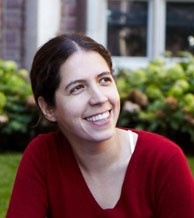 Simine Vazire
Simine Vazire
Washington University in St. Louis
What does your research focus on?
My research examines people’s knowledge about their own personalities. Do people know how they behave? Do they know how others see them? I examine the discrepancies between how people see themselves and how others see them, and try to determine who is more accurate. I also examine whether people are aware of these discrepancies, and if so, how do they justify them? Finally, I’m curious about the processes that lead to these discrepancies – why do others sometimes know us better than we know ourselves?
What drew you to this line of research? Why is it exciting to you?
My interest in this topic started out as a methodological one – which are a better measure of personality, self-reports or peer-reports? Then I realized this question had important implications for self-knowledge, well-being, and interpersonal relationships. Who is the best expert on your personality? It’s one of those questions many people expect psychologists to be able to answer, but we really don’t know much about it.
Who were/are your mentors or psychological influences?
Sam Gosling was my graduate advisor and remains the biggest influence on my research and thinking. I also admire and am influenced by the work of David Funder, Del Paulhus, Will Fleeson, Laura King, and David Kenny.
To what do you attribute your success in the science?
Excellent mentors, collaborators, and graduate students. I’ve been extremely lucky on all three fronts, and there is nothing more important than the people you learn from. In graduate school I was lucky to “grow up” with great researchers and great people, including Matthias Mehl, Pranj Mehta, and Jason Rentfrow. I also owe a great deal of my success to my graduate students – they’re constantly teaching me new things. Finally, I have the great fortune to be in a department that is extremely supportive, with fantastic colleagues.
What’s your future research agenda?
I’m excited to see that self-knowledge is becoming an important subject of study across many areas of psychology – I hope it continues to grow. Personally, I’d like to understand why people can be blind to aspects of their personality that others can see. What purpose do these blind spots serve, are we better off without them, and how can we get rid of them?
Any advice for even younger psychological scientist? What would you tell someone just now entering graduate school or getting their PhD?
Surround yourself with smart, nurturing people who are passionate about what they do and generous with their time and ideas.
What publication you are most proud of or feel has been most important to your career?
I recently published a paper that presents the Self-Other Knowledge Asymmetry (SOKA) model. In it I try to account for the gaps between what people know about themselves and what others know about them. It’s a first stab at this thorny issue – I hope it serves as the foundation for future work.
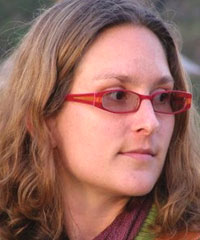 Hanna Zagefka
Hanna Zagefka
Royal Holloway University of London, UK
http://pure.rhul.ac.uk/portal/en/persons/hanna-zagefka_a5318f13-3b28-4a1b-add5-6e1de1eb52a8.html
What does your research focus on?
My research focuses on intergroup relations, particularly acculturation and other phenomena affecting ethnic minorities. More recently, I have started to investigate predictors of charitable donations, a line of work I am currently very excited about. I approach this topic from an intergroup perspective — how do group memberships increase or reduce prosociality towards those in need?
What drew you to this line of research? Why is it exciting to you?
I have always been interested in research topics for which I could see a tangible application, and which have the potential to make a real practical difference outside of academia. Research which focuses on deprived ethnic minorities or on disaster victims in poor countries is capable of leading to improvements for some of the weakest members of society. I find such work inherently interesting and worthwhile.
Who were/are your mentors or psychological influences?
My biggest influence by far has been Rupert Brown, my doctoral advisor and now collaborator and friend, who himself was a student of Henri Tajfel’s. I have also benefited from the advice of Amelie Mummendey — it’s good to have female role models! Roberto Gonzalez is also a constant influence on my thinking; I’m grateful for our productive and enjoyable collaboration.
To what do you attribute your success in the science?
Doing something which intrinsically motivates me; and having the good fortune to collaborate with others who make our joint research efforts not only scientifically richer but also more fun.
What’s your future research agenda?
I would like to expand my exploration of predictors of charitable giving. Identifying psychological processes which encourage or prevent donors from helping victims such as those of Hurricane Katrina, the 2004 Asian Tsunami or the many catastrophic events that have taken place globally since then is something I am itching to continue.
Any advice for even younger psychological scientists? What would you tell someone just now entering graduate school or getting their PhD?
An incredible amount of effort and work goes into every publication, mostly made possible only due to internal drive and self-discipline. So, only pursue the academic path if you truly love the work!
What publication are you most proud of or feel has been most important to your career?
This might be a recency effect, but I’m going to plunge for my most recent paper on donations to disaster victims, which recently appeared in the European Journal of Social Psychology. The media and third sector interest in this work has exceeded my wildest expectations. This confirms to me that this line of work can make a real practical difference, and edges me on to continue along this path.





APS regularly opens certain online articles for discussion on our website. Effective February 2021, you must be a logged-in APS member to post comments. By posting a comment, you agree to our Community Guidelines and the display of your profile information, including your name and affiliation. Any opinions, findings, conclusions, or recommendations present in article comments are those of the writers and do not necessarily reflect the views of APS or the article’s author. For more information, please see our Community Guidelines.
Please login with your APS account to comment.